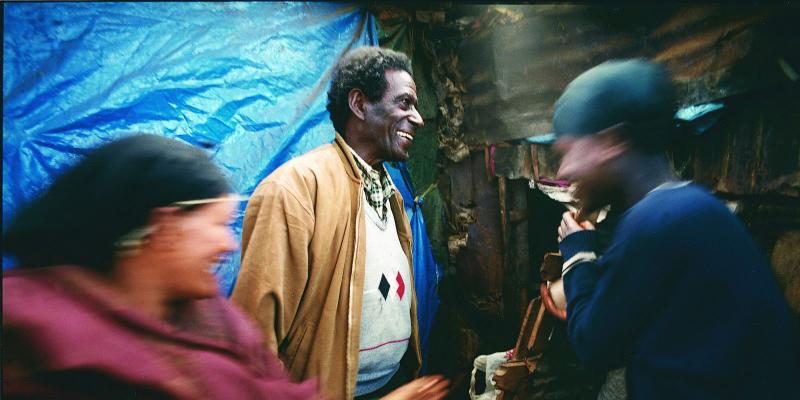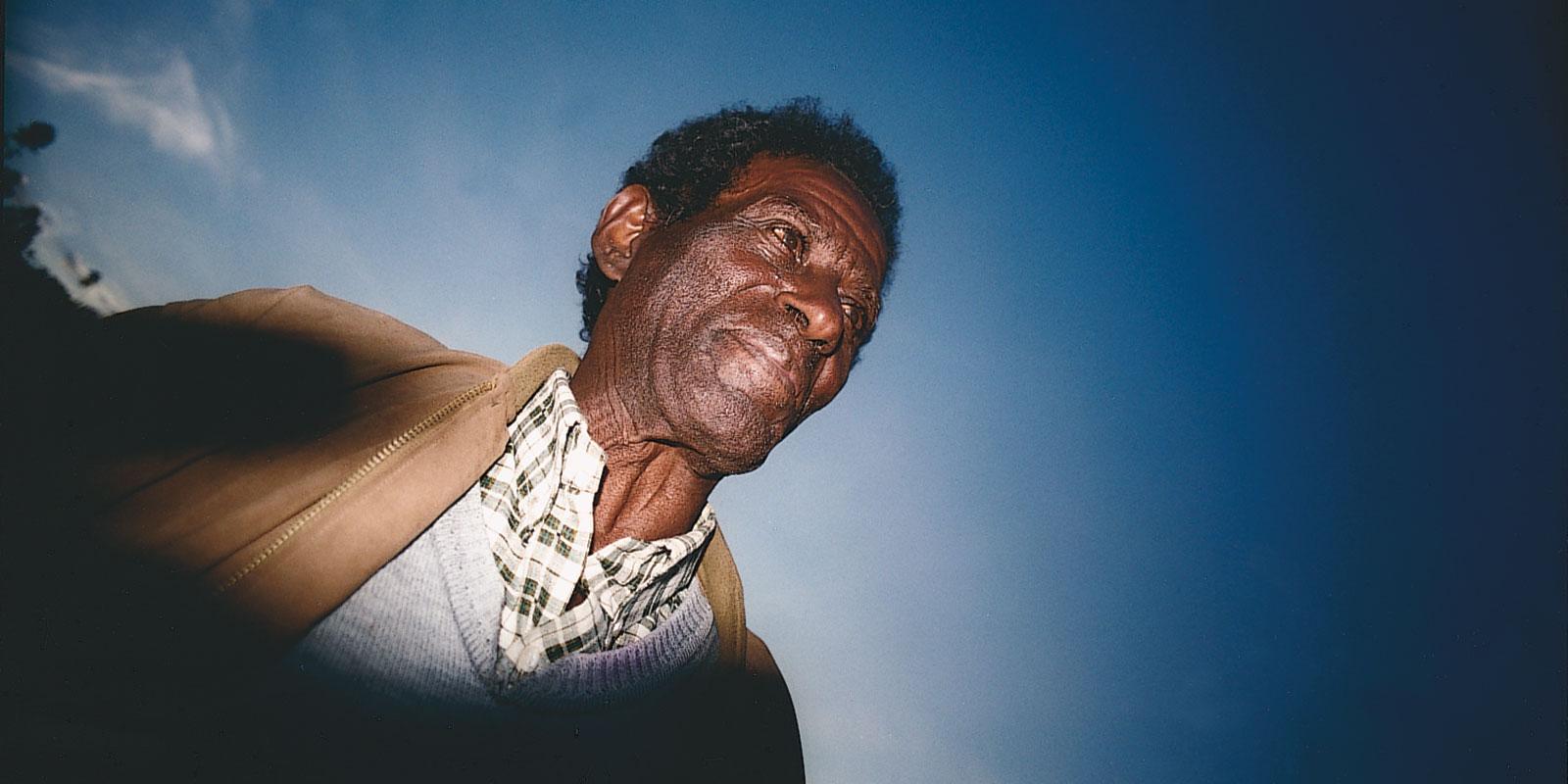
When Asfaw Yemiru was nine he lived alone on the streets of Ethiopia’s capital city Addis Ababa. He started his first school at the age of 14. He has helped tens of thousands of poor children to go to school and achieve a better life.
“Asfaw is a very simple man. His only riches are all of his students,” says Behailu Eshete who attended Asfaw’s first class more than 60 years ago.
Asfaw’s story begins when he is nine years old, watching over his father’s goats. His father has decided that Asfaw is to start attending the village priest-school in a few days. But Asfaw has no interest in this. He had been to the capital Addis Ababa with his father, and has wanted to return ever since. He believes he can have a much better life in Addis Ababa than if he remains in the village with his eleven siblings and looks after goats. But Addis Ababa is a long way away and Asfaw knows that his mother and father would never agree to him moving.
“It usually takes more than two days to get to the city by donkey, so it will take even longer to walk,” he thinks. Early the next morning he heads off to Addis Ababa.
Work and school
When he passes by St. George’s church in Addis Ababa, Asfaw sees many poor orphaned children there. Since he has no money he also goes into the church. Asfaw spends the night there. He spends the next night in the church as well. Asfaw takes a job as a bearer. Sometimes several days go by without him having anything to eat. Like many of the other poor children Asfaw begins to attend the church’s priest school when he doesn’t work. He learns quickly and the priests help him to attend a catholic school. One day a rich woman passes the church with a large basket full of cheeses.One of the cheeses falls out of the basket. “Excuse me! You dropped some cheese,” calls Asfaw and runs up to her.
The woman looks at him and offers him a job and a place to stay at her home. Asfaw accepts and for the next three years he works for the woman and her two sons. Every day he gets up before sunrise and chops wood and fetches water before he runs off to school. Despite hurrying he often arrives late and is beaten by the teachers. When Asfaw comes home from school he is tired, but he still has work to do. He never goes to sleep before late in the evenings.
Eat less!
Asfaw makes up eight school years of study in only a few years. When he takes the final exam in the eighth class his results are so good that he wins a scholarship to the outstanding Wingate boarding school.When Asfaw is 14 he begins at Wingate. He likes the school very much, but one thing bothers him. The school is adjacent to Paulos Petros Church where many poor, orphaned children live. One day as he sits in the dining room and eats, Asfaw gets an idea. “Imagine if we gave the left-over food to the poor children instead of throwing it away!”

Asfaw goes immediately to the headmaster, who thinks that Asfaw is absolutely right. Every day after lunch, Asfaw and his friends hand out food to the hungry children. Asfaw asks his classmates to eat less so that there will be more food left for the poor. Many think this is good, but they still tease him a little. “Look, here comes the boy who wants us to go hungry!” they call and laugh.
Asfaw also collects clothing from his classmates and gives it to the children outside the church. Some of the poor children ask Asfaw if they can’t be allowed to go to school exactly as he does. Asfaw speaks to some of his classmates and they decide that they themselves will try to teach the children. At 4.30 the next day Asfaw holds his first lesson under a big oak tree in the yard. The rumour about Asfaw’s school under the tree spreads quickly, and every day more and more poor children come.
Stop Emperor!
When Asfaw turns 17 and begins his last year at Wingate, some 200 children gather every afternoon at his school under the oak tree. Asfaw had planned to continue his studies at the university, but he feels that he can’t abandon all of the orphans under the tree. He decides to try to build a school where the children can both live and continue their education. But he has no money, and no land. One day Wingate receives a visit from Ethiopia’s Emperor, Haile Selassie. He has come to see how things are going for pupils at the country’s best school. When the emperor is about to leave, Asfaw sees his chance. He throws himself on the ground before the emperor’s car and cries out: “Give us land!” Everyone wonders in terror what will happen.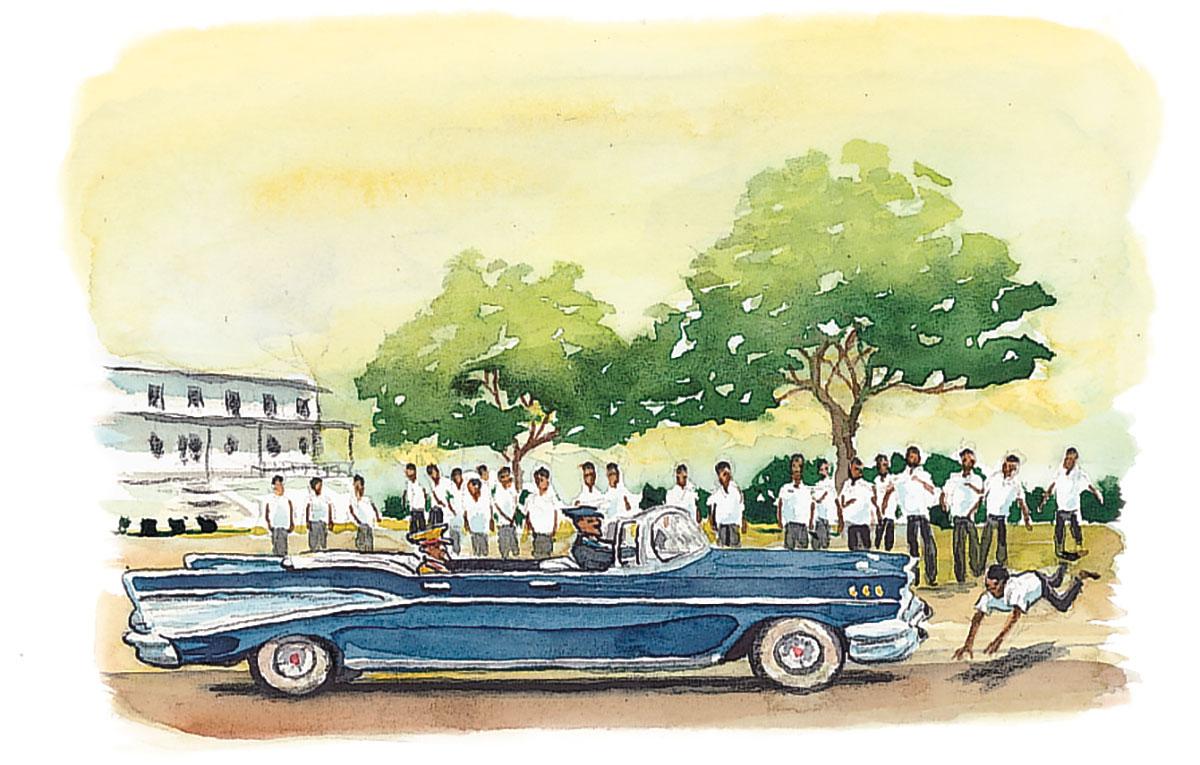
The Emperor gets out of his car and approaches Asfaw. “Why do you need land?” He asks.
“I want to build a school for poor children,” answers Asfaw.
Some time later, Asfaw receives a large plot of land behind the Wingate School from the Emperor. Asfaw is able to borrow money from the headmaster at Wingate and together with the children he begins to build the school and moves into it along with 280 orphaned children.
A new school
Ten years after the opening of the school Asfaw has 2,500 pupils and is “father” to 380 orphans. But Asfaw has two problems. Firstly, the school is getting very crowded and secondly, he realises that many of his students can’t find a job after they graduate. Asfaw decides to build another school.
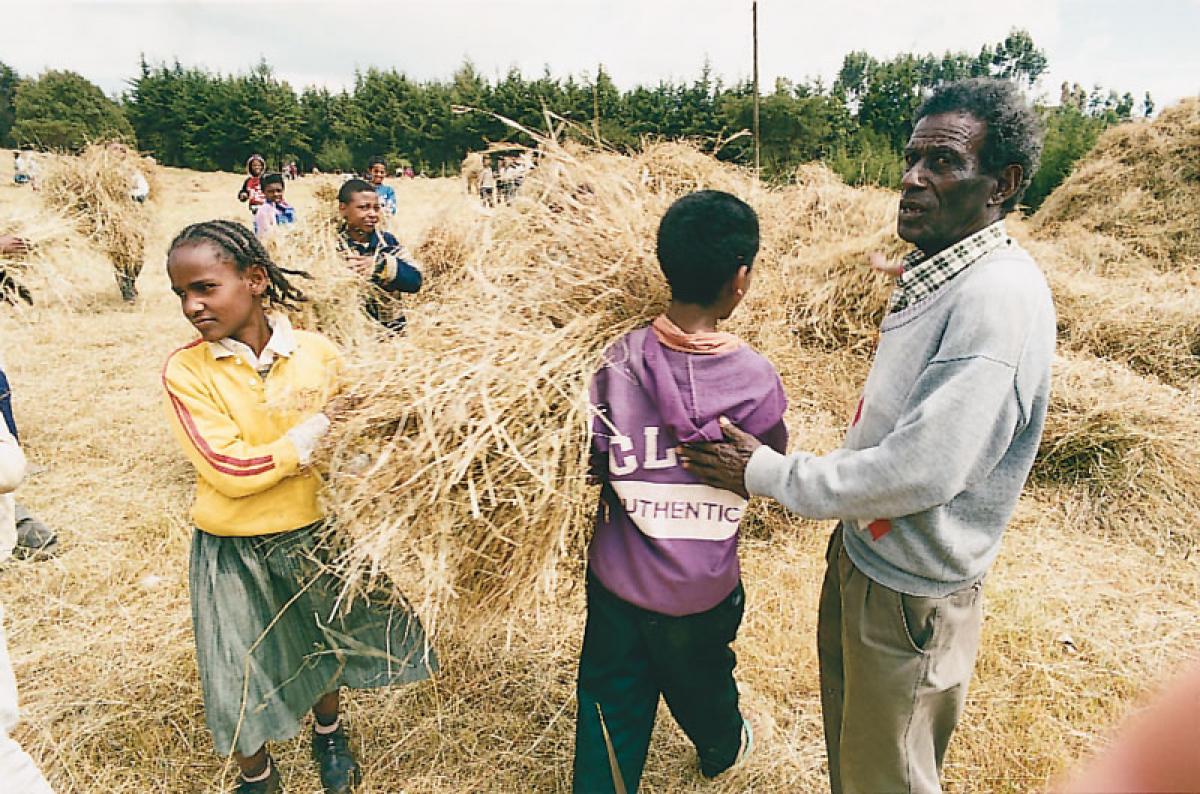
The long march
As usual, Asfaw is short of money, but he has an idea... “We will walk to Harar and back!” he tells some of his oldest students one day. They think he is joking because everyone knows that Harar is 500 kilometres away across the desert, half way to Somalia. But Asfaw explains to his students that they will send out information about their walk to international organisations, companies and rich people to get them to sponsor the walk.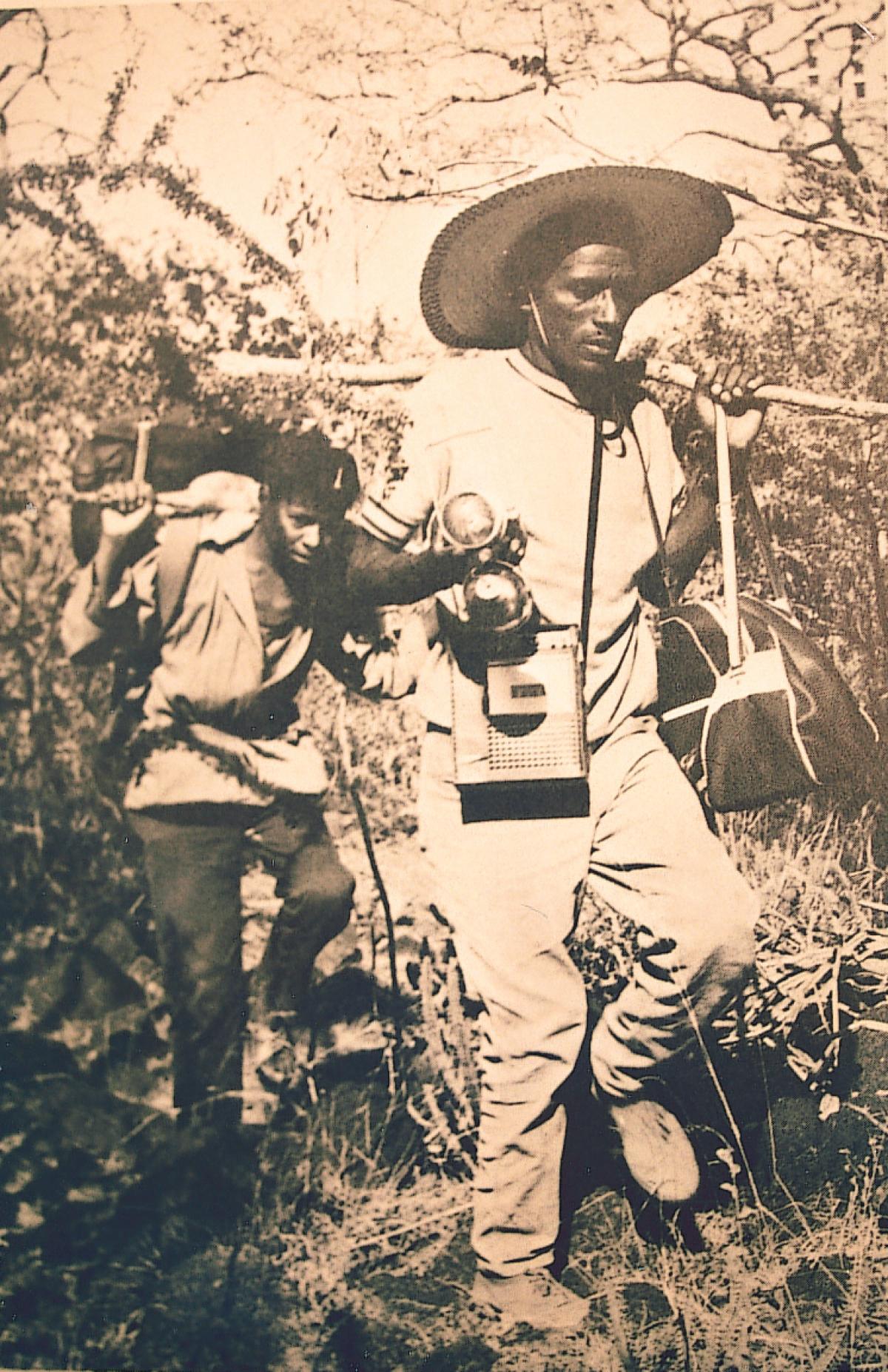
They walk through the mountains and extremely hot steppes. They sleep under the stars. Every day some of the students give up, and finally there is only Asfaw left. He is the only one who walks the entire 1,000 kilometres.
Asfaw uses the phone book to write to the 5,000 richest people and companies in Ethiopia. He gets one answer! But finally money starts coming in, mostly from friends abroad. Asfaw buys a piece of land where, together with his students, he builds another school.
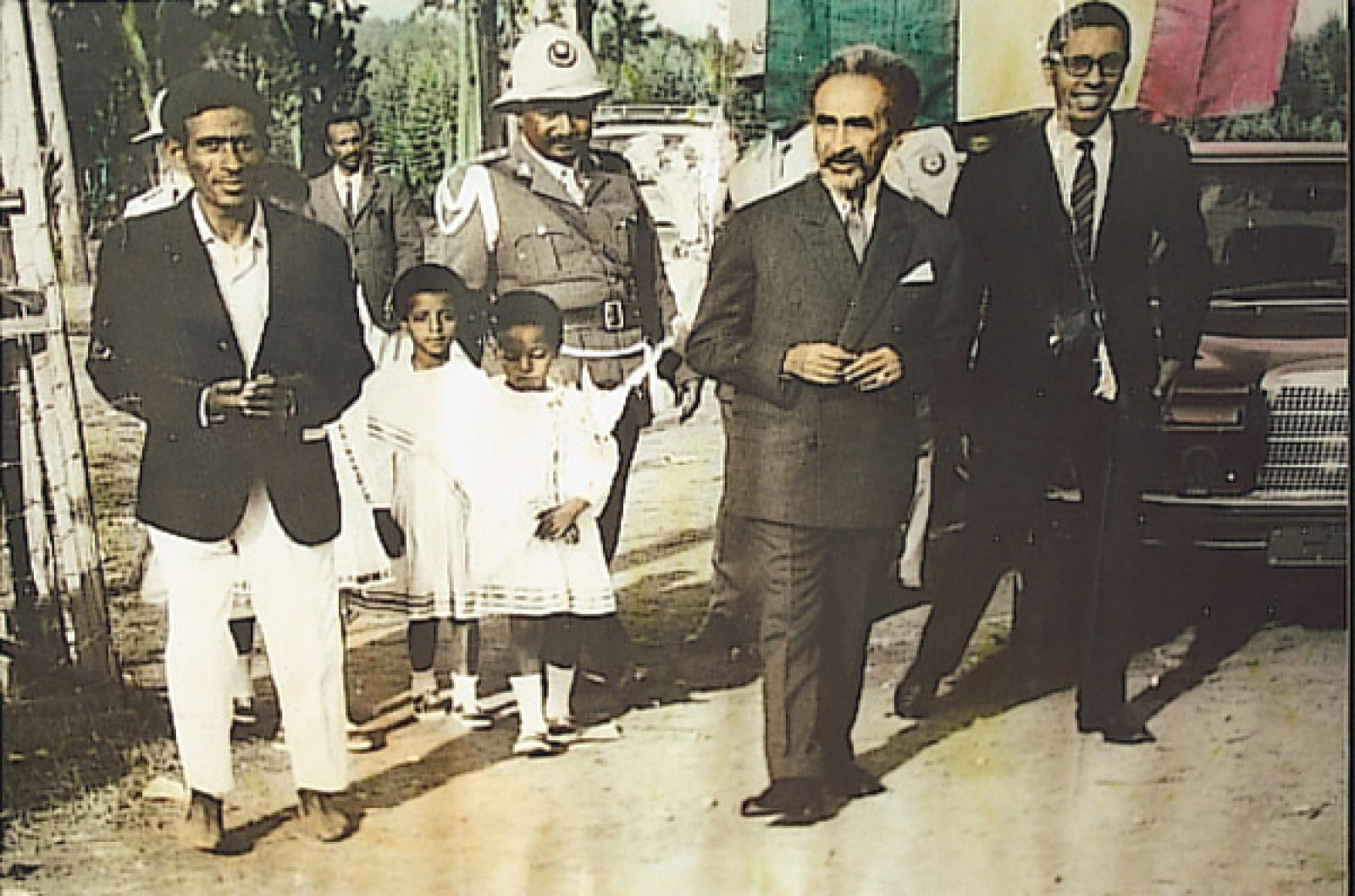
Asfaw’s life was a long and often exhausting journey to help poor children. Under some governments he was even imprisoned for his work. Tens of thousands of children have received their education at Asfaw’s schools since he began teaching orphaned children under that tree more than 60 years ago. Still, Asfaw often felt unhappy that he couldn’t help more children.
Text: Andreas LönnLånggatan 13, 647 30, Mariefred, Sweden
Phone: +46-159-129 00 • info@worldschildrensprize.org
© 2020 World’s Children’s Prize Foundation. All rights reserved. WORLD'S CHILDREN'S PRIZE®, the Foundation's logo, WORLD'S CHILDREN'S PRIZE FOR THE RIGHTS OF THE CHILD®, WORLD'S CHILDREN'S PARLIAMENT®, WORLD'S CHILDREN'S OMBUDSMAN®, WORLD'S CHILDREN'S PRESS CONFERENCE® and YOU ME EQUAL RIGHTS are service marks of the Foundation.



